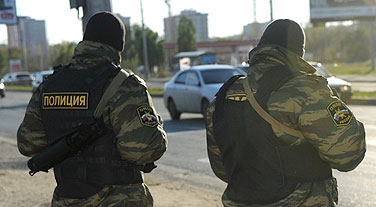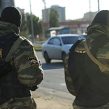
Insurgents and Security Forces Continue to Battle in Dagestan
Publication: Eurasia Daily Monitor Volume: 13 Issue: 19
By:

Since the start of the year, military exercises have taken place in both Chechnya and Dagestan. News reports emphasize that the exercises have been taking place in the mountains. According to the Russian Defense Ministry, motorized infantry snipers of the Southern Military District who are deployed in Dagestan held speed-shooting drills within the framework of individual training at the Dalny test site (Riadagestan.ru, January 15). Snipers will hold exercises using SVD and SVD-S sniper rifles in the forested mountains at distances of up to 1,200 meters.
The exercises are taking place under real fighting conditions, since government forces are waging an unending campaign against insurgents in the North Caucasus. On January 11, police launched a counterterrorism operation in the village of Kvanada in Dagestan’s Tsumada district, during which one individual was killed. Police identified the slain man as Magomed Abdulkhalikov, who had been on the Russian federal wanted list since 2014 and led the Tsumada insurgents. The police suspected Abdulkhalikov of attacks on civilians and law enforcement officials, and extorting money from local businesses. The Russian National Antiterrorist Committee (NAK) stated that the law enforcement agencies were on the lookout for accomplices of the slain militant. According to local residents, the special operation took place in a small area of the village after the arrival of the military. During the operation, the authorities closed the local school and restricted entry into and exit from the village. It took the police a week to search for the suspected accomplices of the slain militant in the village. The counterterrorism operation regime was finally lifted in the village on January 18, after police said that they could not find any other militants (Chernovik.net, January 18).
It appears that even 16 years after the start of the second Russian-Chechen war, Russian government forces have little idea how group solidarity works in the region, where local residents defend their own villagers. The smaller the village (Kvanada, for example, has only about 1,500 residents), the less likely that the locals will hand over the suspects to the police. This does not mean that all residents of the village support the rebels. Rather, it means that against the backdrop of fighting with the Russians, locals will support their own no matter what. This is especially true given that the local residents know quite well the hostile attitude of government forces toward them. The village of Kvanada has endured multiple counterterrorism operations over the past several years (TASS, June 27, 2012) and special operations in its environs (Kavkaz-uzel.ru, March 24, 2015).
The Tsumada jamaat is interesting, because it was set up by one of the main Chechen rebel amirs, Muslim (Muslim Margoshvili), who is currently fighting in Syria against Bashar Al-Assad. Amir Muslim leads the Junud al-Sham group, which is not affiliated either with the Islamic State or the al-Nusra Front. He set up the group in Dagestan back in 2008, when he unsuccessfully tried to break through from Georgia into Chechnya. Having failed to reach Chechnya, Margoshvili established a local jamaat from scratch. Over time the group has become one of the most feared units in the Velayat Dagestan of the Caucasus Emirate.
The activities of the insurgency and government forces in Dagestan are not limited to Tsumada district, but are spread across nearly the entire republic. After the counterterrorism operation regime was lifted in Tsumada district, another was introduced in Derbent and Derbent district in southern Dagestan. On January 19, two people near the village of Mamedkala fired on a police patrol that was trying to check their documents. One of the police officers was wounded and the assailants managed to run away. The police officer was hospitalized with injuries of moderate severity. According to the police, the attackers used a machine gun to fire on the police patrol car, slightly damaging the vehicle (Gazeta.ru, January 20).
Since this was the second shooting in the Derbent area in the past three weeks, it is clear that a local cell of the armed underground movement was involved. Supporters of the Islamic State organization may be behind the latest shooting, because they claimed responsibility for an earlier shooting in the area, which took place on December 30 (Kavkaz-uzel.ru, January 20). If so, the Derbent jamaat is apparently targeting the police and FSB (Federal Security Service) in that part of Dagestan. After both attacks, the militants managed to escape unharmed.
Following the incident in Derbent district, the police introduced a special operation regime in Tabasaran district, which is also located in southern Dagestan. On January 21, the police stated that the counterterrorism operation regime was introduced in order to track down individuals involved in illegal armed groups (Riadagestan.ru, January 21).
Meanwhile, three people were killed and 14 received injuries in Dagestan on January 23 when an armored personnel carrier collided with a van. The accident incited local residents against the army and the police (Kavkaz-uzel.ru, January 23).
Dagestan is increasingly resembling a war zone, even though rebel activity is not as widespread as it was several years ago, with the exception of the southern part of the republic. The rebels are mainly defending themselves. However, Dagestan remains the center of the armed Islamist underground movement in the North Caucasus, which does not bode well for government forces in the near future.




